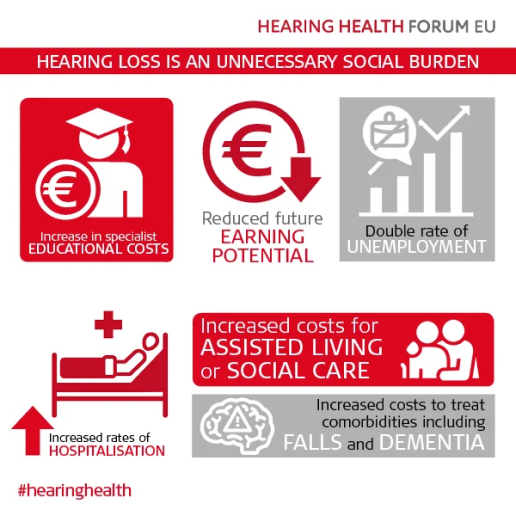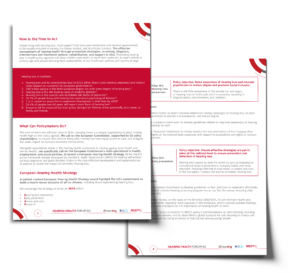Untreated hearing loss costs the EU €185 billion annually in unemployment, reduced productivity, and early retirement—€17 billion more than the 2020 EU budget (Shield, 2019). Including medical expenses and other comorbidities, the total cost rises to €213 billion.
In Western Europe, untreated hearing loss is the leading cause of years lost to disability (Davis, 2016). Beyond economic impacts like reduced earning potential, specialist education costs, and a doubled unemployment rate, it drives increased use of hospitals, assisted living, and social care services. Health effects include:
The index of disability-adjusted life years (DALYs) estimates adult hearing loss will reach 2.9%, reducing the quality of life for 196 million Europeans and costing €67 billion.



